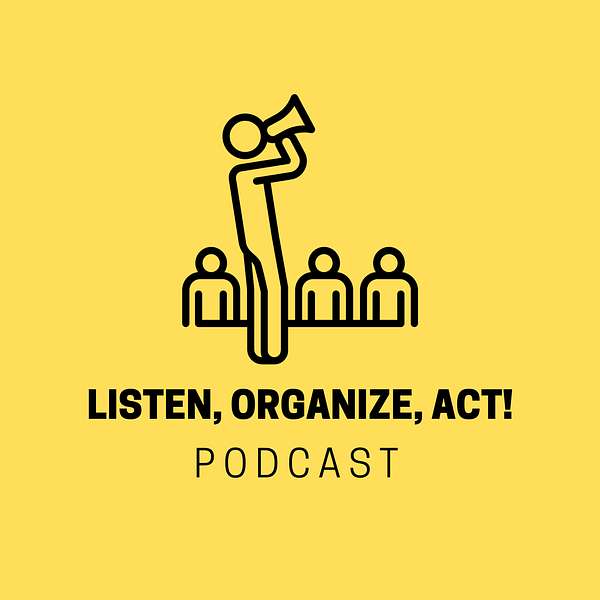
Listen, Organize, Act! Organizing & Democratic Politics
Listen, Organize, Act! Organizing & Democratic Politics
S1.E9: Organized Money II: Economic Democracy & the Solidarity Economy
This episode focuses on is how to organize money so that it fosters the flourishing of where we live and work through generating different kinds of institutions and ways of building wealth in a community to those that dominate the existing economy. Alternative, more democratic forms of economic production and investment and ways of structuring work and ownership are needed to address economic inequality, issues of racial equity, and the need for environmentally attuned forms of business. To discuss what is sometimes called the "solidarity economy," I talked to Felipe Witchger and Molly Hemstreet about the imaginative ways they are organizing money, how this work is embodied in a particular form of economic democracy - the cooperative - and how they envision a more just and generous kind of economy.
Guests
Molly Hemstreet is the Executive Co-director for The Industrial Commons. She co-founded the organization in 2015 to support industrial workers across her region. She is a native of Morganton, North Carolina where she continues to work and raise her family. After leaving university and working for a bit as a teacher, she worked for the Center for Participatory Change organizing economic development initiatives across rural Western North Carolina in a response to the need for fair livelihoods, and then, in 2008, she founded Opportunity Threads, currently the largest, US based worker-owned company that does cut and sew work. She also co-founded the Carolina Textile District in 2013, which supports the resurgence of textiles across the Carolinas. Molly has also served on the national board of the Democracy at Work Institute (DAWI) and the Board for the NC Employee Ownership Center.
Felipe Witchger organizes at the intersection of cooperatives and financial investment. He co-convenes the US Economy of Francesco, at network of Catholics responding to Pope Francis’s call for a more holistic vision of economic development, serves on the Board of Start.coop, and is Co-Founder of the Community Purchasing Alliance (CPA). Felipe has spent 10 years organizing education and faith leaders into a purchasing cooperative which is designed, governed, and owned by the communities it serves. Prior to CPA, Felipe led energy research and consulting initiatives with agencies such as Stewards of Affordable Housing for the Future (SAHF) and Groundswell.
Resources for Going Deeper
Luigino Bruni and Stefano Zamagni, Civil Economy: Another Idea of the Market, trans., N. Michael Brennen (Agenda Publishing, 2016);
Gary Dorrien, ‘Rethinking and Renewing Economic Democracy,’ Economy, Difference, Empire: Social Ethics for Social Justice (Columbia University Press, 2010), Ch. 9;
Vera Zamagni, “A Worldwide Historical Perspective on Cooperatives and Their Evolution,” in The Oxford Handbook of Mutual, Co-Operative, and Co-Owned Business, ed., Jonathan Michie, Joseph Blasi, and Cario Borzaga (Oxford University Press, 2017), Ch. 7;
Jean-Louis Laville, “Social and Solidarity Economy in Historical Perspective,” in Social and Solidarity Economy: Beyond the Fringe, ed., Peter Utting (Zed Books, 2015), Ch. 1;
Jessica Gordon Nembhard, ‘Introduction: A Continuous and Hidden History of Economic Defense and Collective Well-Being,’ Collective Courage: A History of African American Cooperative Economic Thought and Practice
- For more information & relevant updates follow me on Twitter: @WestLondonMan
- For readings to download relevant to or discussed in an episode visit: https://ormondcenter.com/listen-organize-act-podcast